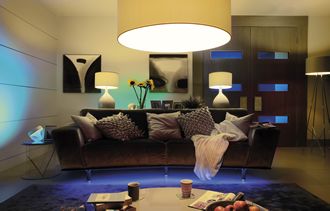 Light bulbs using LED technology that know where they are and can be programmed are still in an early stage of development.
Light bulbs using LED technology that know where they are and can be programmed are still in an early stage of development.
But that is about to change, said ABI Research – suggesting that while shipments were less than 2.5 million units in 2013, by 2020 the installed base is likely to be over 400 million.
LEDs using 802.15.4 protocols – that’s wi-fi – are likely to be the winners representing a three quarter share of the market. ZigBee Light Link will be the preferred way of connection.
Prices of LED bulbs are continuing to fall and the market is likely to be saturated pretty quickly because of their typically longer life.
There is quite a gaggle of players in the market already including Philips, GE, Osram, Belin, Insteaon, LG and Samsung.
Malik Saadi, director at ABI Research said that smart lighting will be fuelled by customer lifestyle patterns including automation and high energy efficiency.
Philips already sells light bulbs and lighting strips that can be programmed to turn on or off as people arrive at or leave their houses, and can be switched off and on remotely using the internet.





